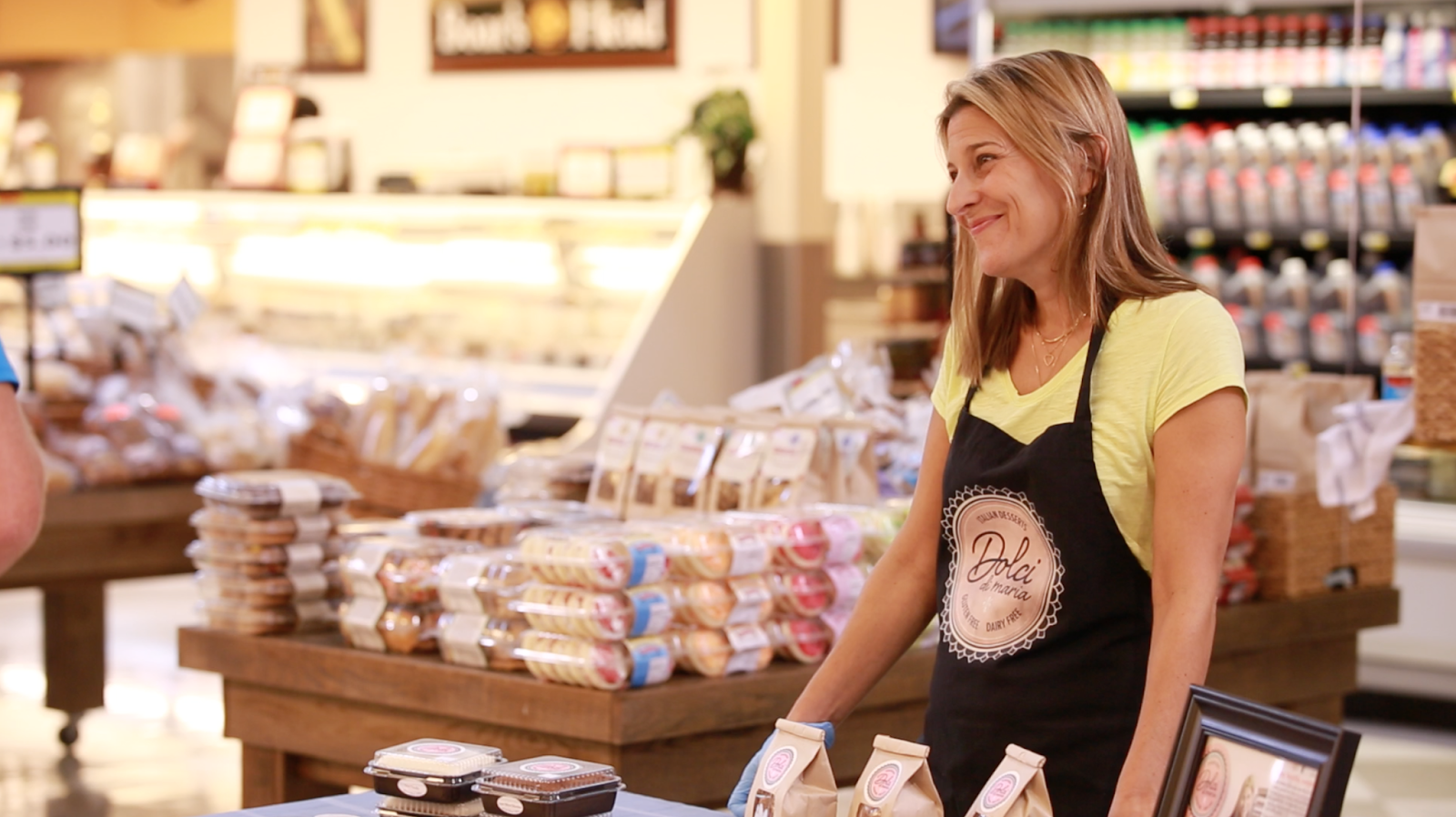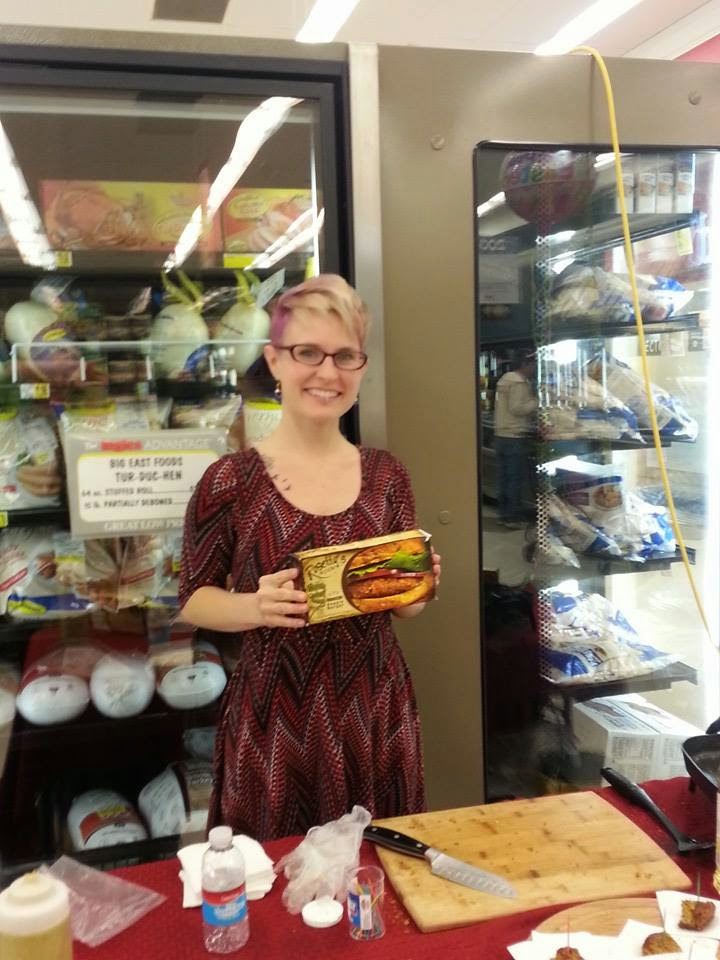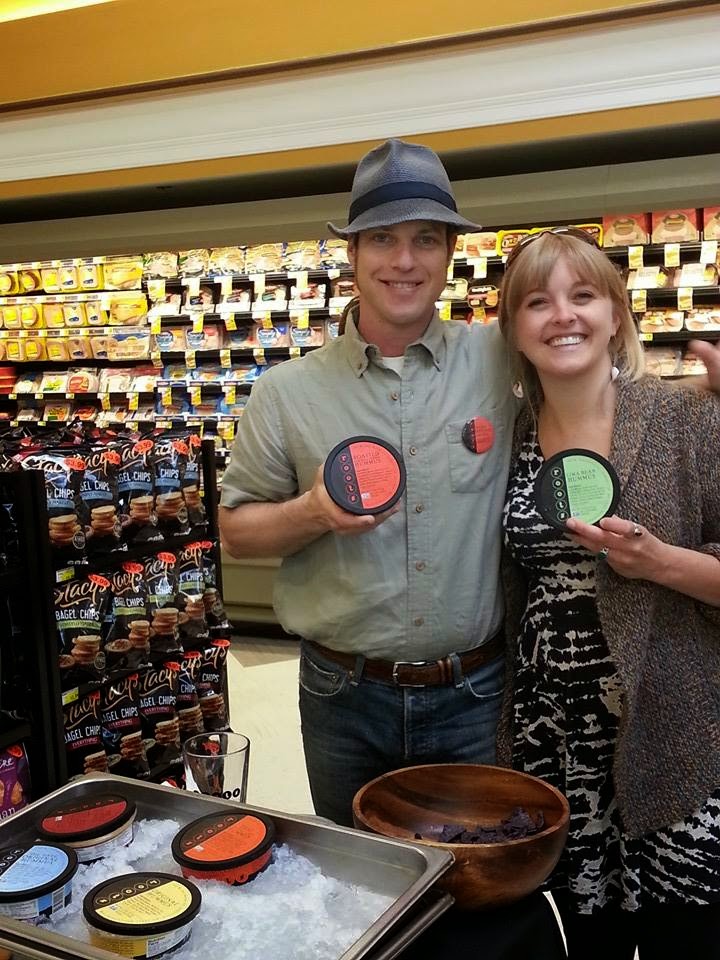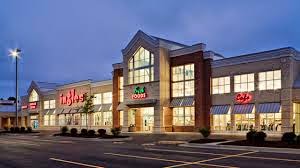“Taste of Local”- Guest post by Ana Hoffman – University of TN Dietetic Intern.
Grown in your town. Picked by your neighbor. Sold down the street. The local food craze is sweeping the nation- town by town. If you’re anything like me, you’ve seen the popular slogan, “Eat Local,” on bumper stickers of every passing car. As a future dietitian, I often get questions on the benefits of eating local and how to get local foods. However, to many consumers surprise, local foods can be found in your local supermarket in many cases. In early April, I had the opportunity to attend “Taste of Local,” an event hosted in Asheville, NC by Ingles Supermarkets and organized by Leah McGrath, Ingles Corporate Dietitian. The event brought nineteen local food vendors and countless customers. Each food vendor set up a small booth beside their product in the store and offered generous samples to entice new customers. I had the privilege of talking with these vendors to learn a little more about what they do and how they do it.
 |
| Mary – Dolci Di Maria Gluten Free treats – Swannanoa, NC |
Without customers, the food vendor would not exist (at least successfully). Now, customers have a lot of questions and knowledge when it comes to the foods they eat.
A representative from Sunny Creek Farm stated, “consumers want to know where their food comes from and we want to tell them!’ So educating consumers is a big part of being a local food vendor. And in addition to telling customers what their product is and where it comes from, vendors have noticed an increase in the number of customers asking how they grow their food (ie. No-GMO’s, processed foods, Organic, free range, etc…).
Many vendors mentioned the most popular inquiries they get are if their food is “organic.” Organic agriculture refers to those products that are produced using methods that preserve the environment and avoid many synthetic materials, like pesticides and antibiotics. There is a long list of standards that farmers, ranchers, and food processors must follow (you can read all about it here). And while many customers have heard organic is better, that is not necessarily true for all products. It takes a farmer 36-months, at minimum, to transition to a USDA Organic Certification operation and can cost upwards of several thousand dollars.
 |
| New Sprout Organic Farm – Swannanoa, NC |
Like most things, organic foods have pros and cons. Organic foods have not been found to be safer or more nutritious than conventionally produced food. However, for many shoppers that are allergic to foods, chemicals, or preservatives, organic farming practices allow them to continue enjoying their favorite foods (1). Additionally, not all local foods are organic, and not all organic foods are local. For many food vendors, becoming organic certified is not viable with the cost, even though they may be using organic practices. One vendor put it best when she remarked, “Organic food is dependent,” on the type of food, the customer, and their desires. In many cases, healthy food outweighs whether or not it is also organic.
 |
| Rosetta’s Kitchen – veggie burgers – Asheville, NC |
Local food vendors face many challenges- from bringing their concept to life, to dealing with growing pains as their companies expand. Many vendors cited that starting their business (which was hard) was not the most difficult part of their journey. What was/is the most difficult is learning how to expand to meet growing demand- finding commercial processors, retail space, increasing ingredient supply, and adapting with seasonality. Luckily- food vendors tend to be quite creative and love to share.
 |
| Roots Hummus – Asheville, NC |
Appalachian Sustainable Agriculture Project (ASAP), a non-profit serving Asheville, NC, helps many small farmers market their products – power in numbers. This tale was told by several of the vendors. In order to keep up with consumer demand, many small farmers join together to supply
 |
| Sweetwater Growers – Canton, GA |
ingredients and products.
To account for seasonality, Sweetwater Growers has adapted using a hydroponic greenhouse to grow their herbs. Allowing them to harvest fresh, living herbs year round.
“It’s a learning journey,” says Ardenne Farm representative Victoria Lambeth, speaking of their continuous journey to bring local foods to consumers everywhere.
For many of the vendors, coming up with a product was not their intention. Rather, they were recognized as being good at making a product and saw a demand for it in retail. When I asked many of the vendors how competition from national brands factored into their business they acknowledged it was there but were passionate that being local was their competitive edge.
 |
| Firewalker Hot Sauce – Asheville, NC |
Franco, the owner of Firewalker Hot Sauce remarked how getting the consumer “addicted to good for you flavors,” is a good start. From there, continuous innovation and customer satisfaction takes the business.
I was surprised to learn that the main marketing strategy employed by majority of the local vendors was through local restaurants- community collaboration at its best. Many of the vendors market to local chefs and restaurant owners to use their product. Customers eat the product in the restaurant and then want to try it at home. Vendors also noted social media as a main marketing avenue. Traditional marketing plans are expensive- and word of mouth seems to work best with the local vendors.
Local food has many benefits. For the producer, they know how their food is made and are proud to share. An intern from Hickory Nut Gap Farm says, “It’s wonderful to be proud that our animals are treated humanely.” And like all small business owners, local food vendors have goals to grow their businesses and multi-location retailers provide that opportunity. The vendors noted that many supermarkets are open to hearing what your product is and what your business plan has to offer. From there, the vendors take it store-by-store, and town-by-town. For many consumers it is a learning curve to know that large supermarkets, like Ingles, have local foods. So, encourage your family, friends, and even strangers at the store, to buy local… you may just be helping your neighbor!


